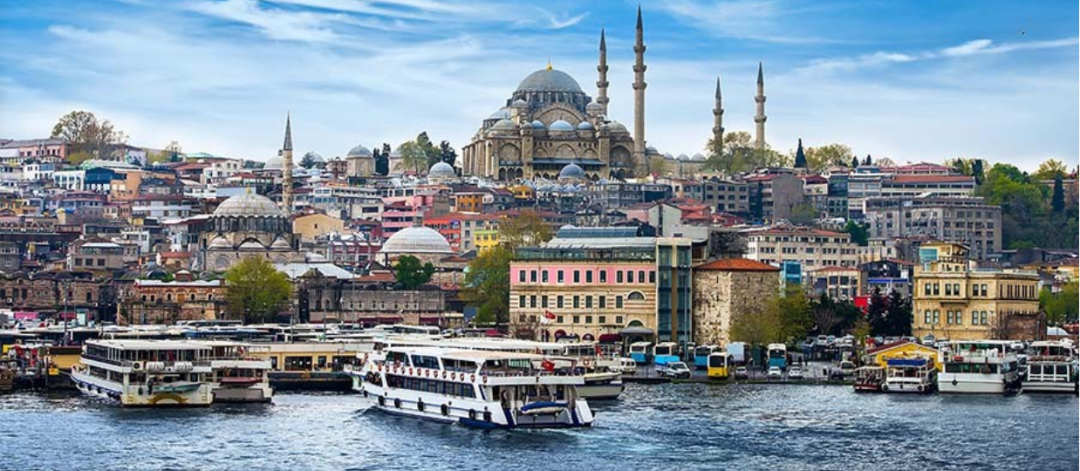
By 2030 urban settlements are projected to house 60% of the global population, whereas by the same time Megacities, urban zones with over 10 million inhabitants, will host 14.6% of the total inhabitants worldwide. It is estimated that, in the same period, the number of megacities will grow from 33 in 2018 to 43[1].
In line with the urban sprawl, climate change and growing demand for quality of life, megacities face specific challenges and vulnerabilities not only in terms of managing service capacity, such as drinking water or wastewater treatment, but also prevention and mitigation to the growing risks, ranging from extreme weather, water scarcity and floods to sea-level rise. They are therefore on the frontline for climate action and are regional pivots that call for water stakeholders’ collaboration at different levels to respond with sustainable solutions.
The Megacities Alliance for Water and Climate (MAWAC) was proposed in 2015 as an international collaboration forum to enable megacities to learn from each other’s experience and share best practices to address these specific challenges. Today, the Alliance is working towards a Strategic Global Framework to propose a model of cooperation and sustainability and outline the future modalities of action, while taking into account the great diversity in governance and financial capacity of megacities around the world.
To formulate the Strategic Global Framework of the Megacities Alliance for Water and Climate, the Intergovernmental Hydrological Programme (IHP) recently activated a Working Group with official nominations from 10 countries and 11 Megacities around the world: Bangkok, Bogota, Ho Chi Minh City, Istanbul, Jakarta, Karachi, Lagos, Lahore, Lima, Mexico City, and Paris.
Current progress and next steps
The modality and milestones of MAWAC were discussed during initial Information Webinars on 16 and 24 April 2020,as well as a proposed work plan towards the First Draft of MAWAC’s Strategic Global Framework. The Working Group members shared the most up to date information on water management in their cities. The MAWAC cooperation platform facilitates pooling and sharing collective knowledge and creativity for climate solutions.
The Working Group members, main conductors of the intergovernmental working process, are now working with UNESCO to develop the first proposal of the Strategic Global Framework for the MAWAC. It integrates their expertise, practical experiences, and city perspectives into a tools package by UNESCO.
Their inputs were synthesized and discussed in a virtual meeting (the first drafting meeting) in June. Two more rounds of consultation, collection and synthesis will be organized over the next two months, in order to finalize the first draft of the Strategic Global Framework by September 2020. The consultation and review of the final draft will take place from October to November 2020. This process aims to involve validation by diverse Megacities.
The final Alliance’s Strategic Global Framework will be launched at the Second International Conference “Water, Megacities and Global Change” (EauMega 2020), which will be held from 1 to 4 December 2020 at UNESCO Headquarters in Paris.
Background
The idea for establishing MAWAC was brought forward during the COP 21[2] climate conference through a Declaration resulting from the 1st International Conference on Water, Megacities, and Global Change held at UNESCO in 2015 (EauMega 2015). This Declaration requested UNESCO to create the platform for MAWAC. In the effort to complete this task UNESCO aims to build the future platform of the alliance with the cooperation and active participation of the megacities and their inclusion in the drafting process of the Strategic Global Framework.
More information:
https://en.unesco.org/mawac
Contact
(Source: UNESCO)
水和气候变化:建立超大城市的战略框架
到2030年,城市预计将成为全球60%人口的栖身之处,而此时,那些一千万人口以上的超大城市将容纳全球总人口的14.6% ,到那时这些超大城市的数量根据预计会从2018年的33个增加到43个*。
鉴于城市化进程中的无序蔓延、全球气候变化所带来的影响,以及随着居民对生活品质的更高追求,特大城市不仅在管理服务能力方面(如饮用水供应或废水处理),而且在灾害风险减、防方面(如极端天气、缺水、洪水及海平面上升)都面临城市挑战性和脆弱性的特殊一面。超大城市也因此成为应对气候变化的行动的前线,和展开多层次合作从而更好地应对这一挑战的区域中枢。
建立大城市水与气候联盟(Megacities Alliance for Water and Climate, MAWAC)这一国际协作平台的倡议于2015年提出,该平台使大城市能够相互学习并分享优秀实践以应对这些具体挑战。如今,MAWAC正在努力制定一项全球战略框架,以提出一种合作与可持续性的模和未来的行动方式,同时考虑到世界各地特大城市的治理和财务能力的巨大差异。
为了制定超大城市水与气候联盟的全球战略框架(Strategic Global Framework, SGF),政府间水文计划(Intergovernmental Hydrological Programme, IHP)最近启动了一个工作组,该工作组的成员由接收到的来自世界10个国家(包括11个超大城市)的官方提名组成:曼谷、波哥大、胡志明市、伊斯坦布尔、雅加达、卡拉奇、拉各斯、拉哈尔、利马、墨西哥城和巴黎。
目前进展和未来计划
在2020年4月16日和24日,工作组的首次研讨会在线上举行。会议首先分享了MAWAC的项目信息和已有成果,随后针对MAWAC全球战略框架初稿的拟议进度的工作计划进行充分讨论。在会议上,工作组成员讲解了各自所在城市中水资源管理的最新信息和情况。工作组致力于构思MAWAC合作平台的框架,以助于全世界范围内汇集和分享应对气候变化解决方案的集体智慧和创造力。
工作组成员是本次政府间执行过程的主要参与者,目前正与教科文组织合作草拟MAWAC的全球战略框架的初稿提案。本阶段结合了工作组成员的专业知识、实践和工作经验,以及城市视角经验,完成由教科文组织准备的工具包。
此次结果在6月的线上会议(即第一次起草会议)中进行整合和讨论,另外接下来的两个月将有两轮的咨询、收集和整合,初稿预计将于2020年9月完成,最终草案的磋商和审查将在2020年10月和11月进行,这个过程会收集各超大城市的建议以获得认可。
全球战略框架的文件将在第二届“水,大城市与全球变革”国际大会(EauMega 2020)上签署启动,该会议将于2020年12月1日至4日在联合国教科文组织巴黎总部举行。
背景
超大城市水与气候联盟(Megacities Alliance for Water and Climate, MAWAC)是在2015年第21届联合国气候变化大会*(COP21)于教科文组织巴黎总部召开期间,通过第一届“水,大城市和全球变革”国际大会(EauMega 2015)诞生的宣言提出,该《宣言》倡议教科文组织建立MAWAC平台以实现这个主题方向的目标。为了完成这项任务,教科文组织的目标是在超大城市的合作和积极参与下,以及将其积极纳入《全球战略框架》的起草过程中,建立联盟的未来平台。
Alexandros Makarigakis:
a.makarigakis@unesco
林凯欣:
k.lin@unesco.org
[1] 来源:世界城市化前景报告(2018年修订)(英语)
[2] 第21届《联合国气候变化框架公约》缔约方会议